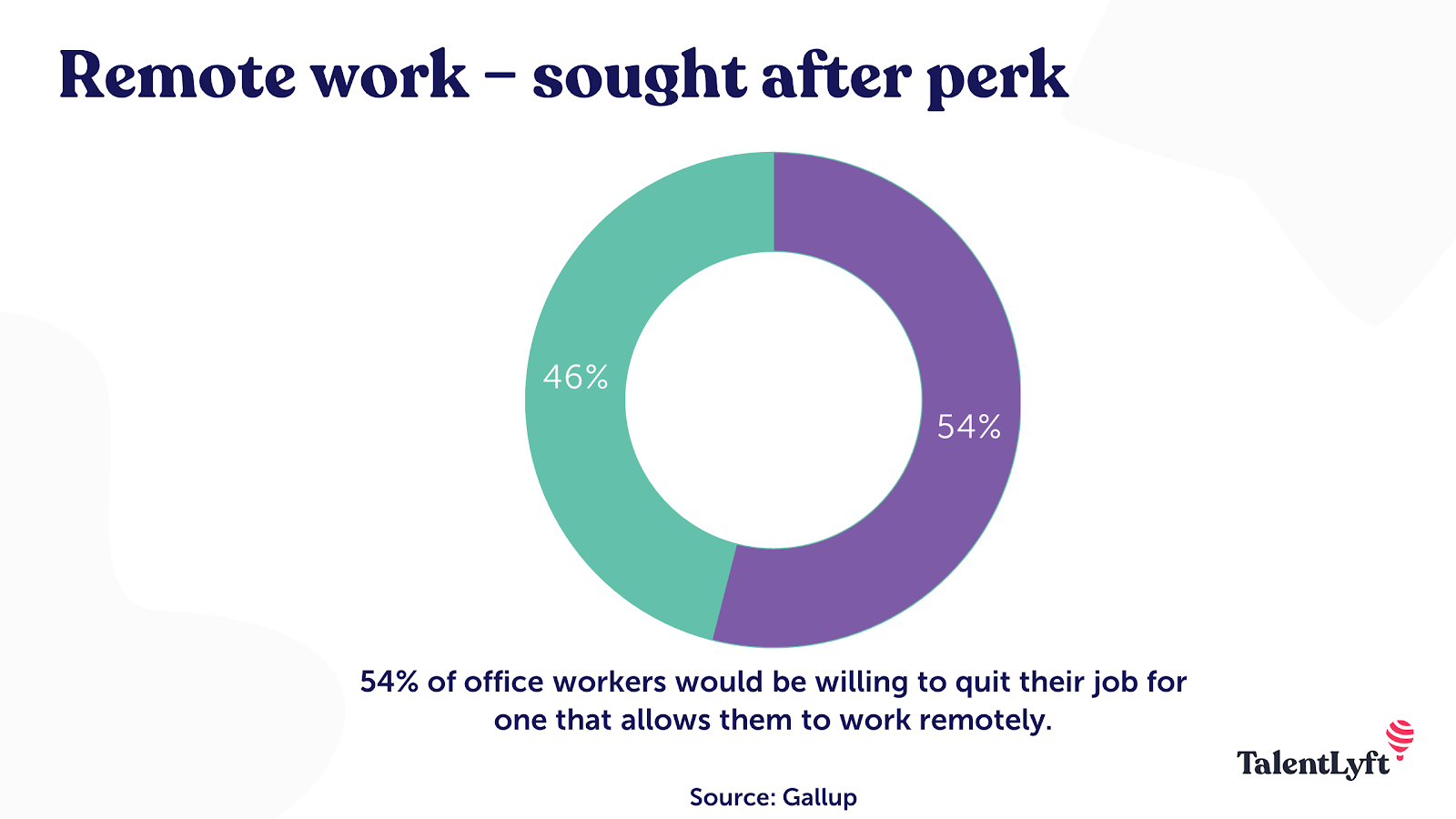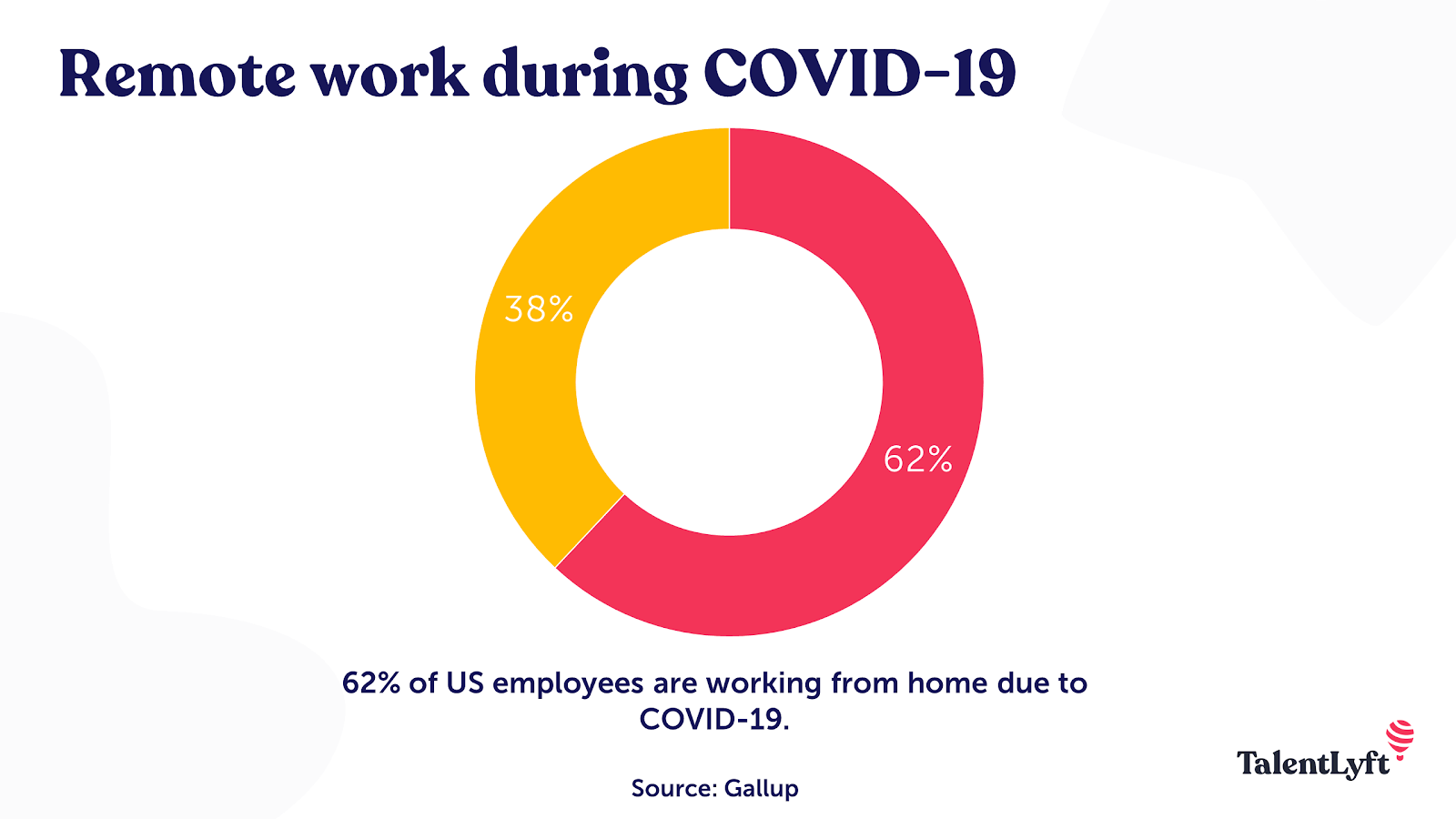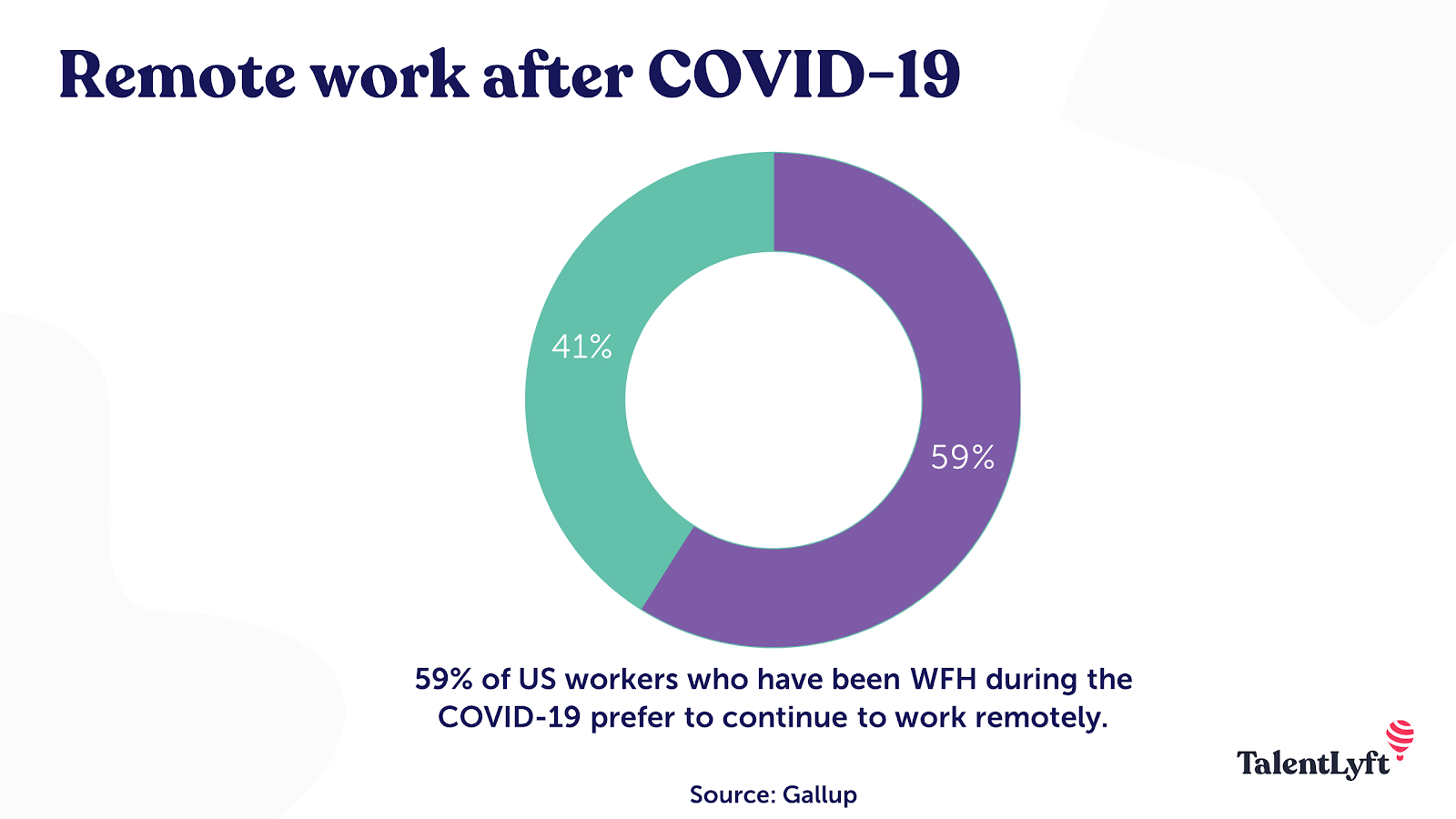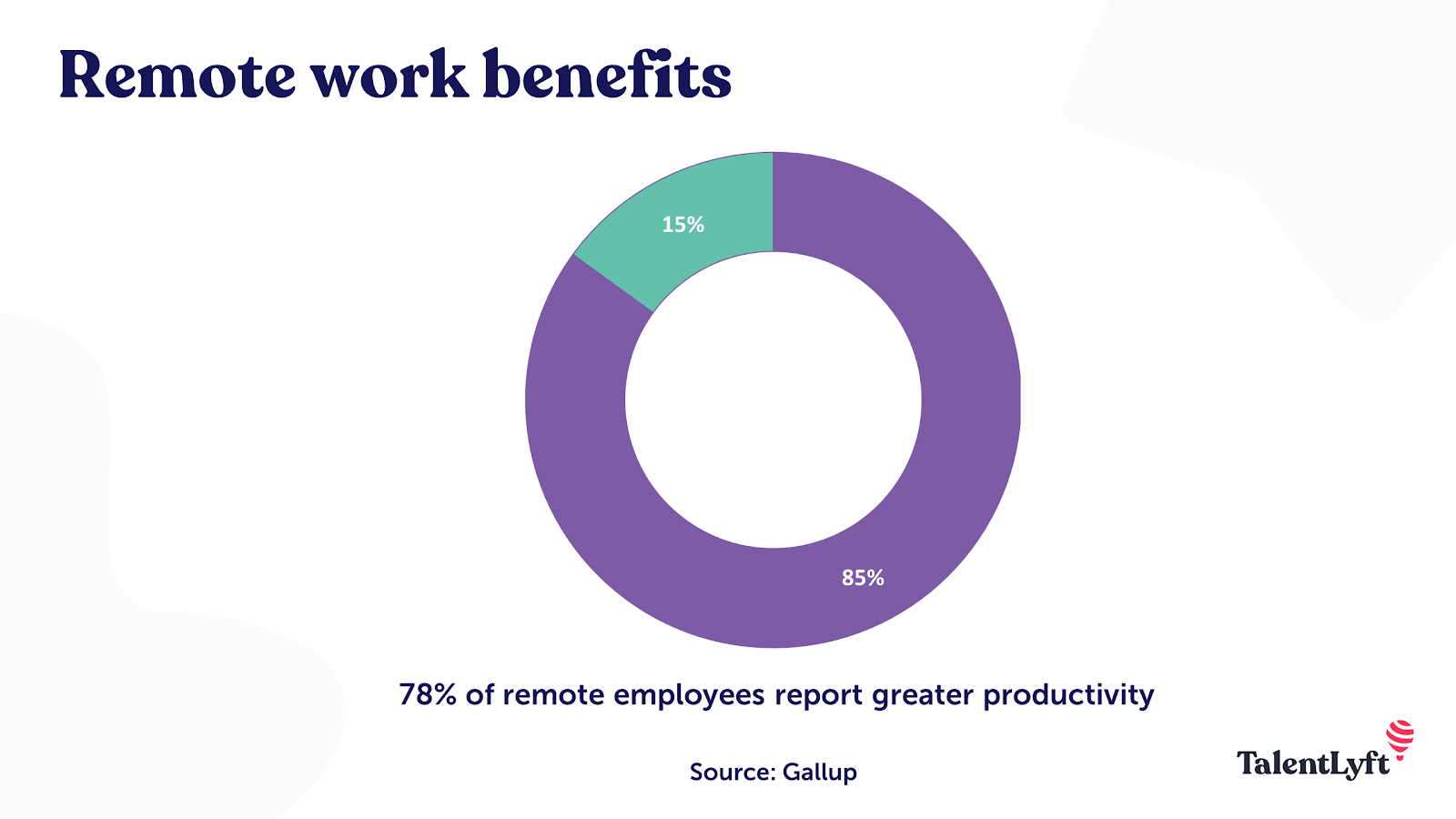
Working from home is the new normal now. But is it here to stay? Or is it just a temporary solution to the COVID-19 pandemic? Will this global remote work experiment completely change the way we live and work? Is the future of work - remote?
Working from home is the new normal now. But is it here to stay? Or is it just a temporary solution to the COVID-19 pandemic? Will this global remote work experiment completely change the way we live and work? Is the future of work - remote?
➡️ Only around 7% of U.S. employees regularly worked from home before COVID-19.
According to a report by the Pew Research Center based on data from the Bureau of Labor Statistics' most recent National Compensation survey, only 7% of workers in the U.S. had access to a “flexible workplace” benefit or telework.
In Europe, it was similar, with most countries having up to 10% of remote employees. Only some countries had a much higher percentage of remote employees, and by much higher I mean up to 20%, for example, Sweden, Netherlands, and Denmark.
A 2017 study of 30 European countries found that 23% of Danes, 21% of Dutch, and 18% of Swedes worked from home “at least several times a month.”
It is important to note here that employees who worked remotely even before the COVID-19 were mostly managers, white-collar professionals, and highly paid. In the pre-coronavirus pandemic world, remote work was a top benefit reserved mostly for C-level suites. 👔
Another evidence that remote work was a sought after benefit was this very interesting stat found by Gallup’s research conducted at the beginning of January 2020, just a few months before the COVID-19 pandemic:
54% of office workers would be willing to quit their job for one that allows them to work remotely, Gallup’s research has found. 😲

💡 KEY TAKEAWAY:
Before COVID-19, remote work was a highly sought-after perk available mostly to C-level suites. But then came the coronavirus - and everything changed! 😷
The COVID-19 pandemic has forced millions of people all around the world into their homes and given them no other choice but to work remotely. But how many people exactly are working from home because of the coronavirus? 🔍
➡️ Around two-thirds of Americans are working remotely now due to COVID-19, according to multiple independent sources.
64% of US employees are working from home now, according to research conducted by SHRM’s COVID-19 Business Index.
62% of employed Americans currently say they are working from home during the crisis, as found by a recent Gallup research.

💡 KEY TAKEAWAY:
60% of US employees have switched to remote work because of the COVID-19 pandemic.
So here we are, working remotely. But will it stay that way? Has COVID-19 completely changed the way we live and work? Is the future of work - remote? 🤔
So what will happen after COVID-19? Some employees will definitely go back to offices, but some might want to keep working remotely.
As we mentioned earlier, before COVID-19, 54% of office workers were willing to quit their job for one that allows them to work remotely. It would be interesting to hear what they think now, after experiencing remote work, don’t you think? 🔍
🤓 So I did a little digging and found the answer:
According to a recent Gallup research, three in five (59%) of U.S. workers who have been doing their jobs from home during the coronavirus pandemic would prefer to continue to work remotely as much as possible, once public health restrictions are lifted. In contrast, 41% would prefer to return to their workplace or office to work, as they did before the crisis.
According to a recent survey conducted by getAbstract, 43% of U.S. full-time workers in the U.S. would like to work remotely more often after COVID-19, citing the absence of a commute, added flexibility, and productivity gains as the main motivations behind that wish.
A new LinkedIn survey suggests more than three in five Australians believe working from home will become the norm, even when the coronavirus pandemic has passed.
99% of people say they’d like to work remotely at least some of the time for the rest of their careers, as reported by ResumeLab.

So it seems that not a lot has changed. More than half of employees still want to work remotely, even after COVID-19! How will employers respond to that?
They will have to adapt. And it seems they are very aware of that!
Recent research by Gartner found that 74% of companies they surveyed expect some of their employees to continue working remotely after the pandemic ends.
💡 KEY TAKEAWAY:
More than half of employees want to keep working remotely even after the COVID-19 pandemic ends and it is safe to return to the offices.
Even before the pandemic struck, remote work was accelerating in the U.S. A special analysis done by FlexJobs and Global Workplace Analytics found that there has been a major upward trend in the number of people working remotely in the U.S. In the last five years, we have seen a 44% growth in remote work. 📈
But COVID-19 has brought a mass work-from-home experiment, forcing two-thirds of Americans to work remotely. In a matter of weeks, companies and employees had to adapt and get everything up and running - remotely. But is this a sustainable, new way of working for the future?🔮
It may be, especially because the future work-from-home scenarios will be very different from the pandemic one. We are now prepared, we invested time and effort in setting up our home offices and, probably most important of all, in the post-pandemic world, children will be back at school, leaving parents to work from home undisturbed.
This is why almost half of those employees would like to continue working from home even after the pandemic. Employees want to work from home because this allows them to save time on an everyday commute, have a better work-life balance, and make them more productive.
In a recent study of 10,000 global employees, 83% of employees report they are more productive working from home
Gallup research has also confirmed that working remotely is more effective.

Increased productivity is definitely a great benefit for employers. But allowing employees to work from home has many other benefits for employers, such as reduced office costs, access to a wider talent pool, higher retention rates, etc.
However, we have to keep in mind that not all jobs are suitable to be done from home. Even if a lot of people keep working from home after the pandemic, we will still have to rely on other people, for example, to deliver our lunch or work in grocery stores so we can go and buy ingredients for the lunch we'll prepare at home.
On the other hand, a lot of people who can do their jobs remotely, and haven’t been given that chance before, will now demand it. Top companies know they will have to offer remote work if they want to keep top talent in the future.
➡️ Microsoft has already stated that remote work is here to stay, Facebook and Google extend working from home to the end of the year and Twitter’s CEO has announced that their employees can work from home forever! 😮
💡 KEY TAKEAWAY:
Remote work is here to stay, at least for some employees. Companies have to be prepared for that if they want to remain competitive in the market and keep their current top performers and attract new talent.












